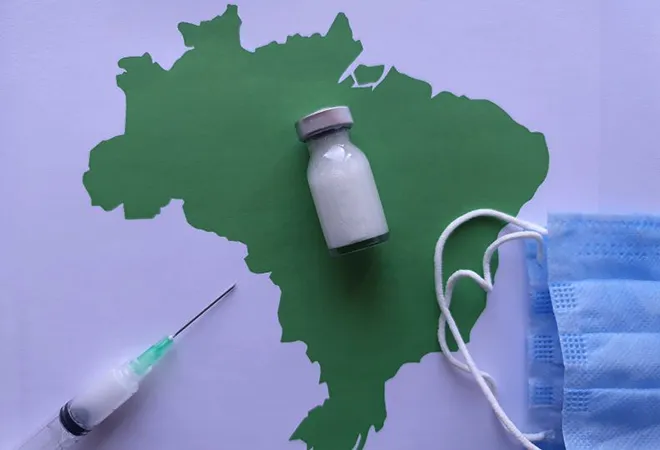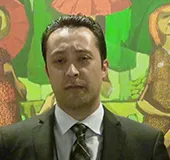 This article is part of the series — 2021: The Year of Vaccines.
This article is part of the series — 2021: The Year of Vaccines.
The Brazilian federal government has been celebrating the country's COVID-19 vaccine rollout and reporting it as a major example of success. The national press, in turn, denies official figures and offers a far more critical view of the process. After all, is Brazil a champion of immunisation or, rather, a global laggard of the pandemic, whose neglect has caused unnecessary suffering to its people with potential harm for all humanity?
The devil is in the details. It should be noted, first, that Brazil has not developed a vaccine against COVID-19 yet. Despite having world-class scientists and a robust industrial park, it takes no part in that group of pioneers that have invested in immunisers. Among the founders of the
BRICS grouping, Brazil is the only one to have no vaccine at an advanced stage of development. Even neighbouring
Cuba — an island hard hit by an economic embargo of the United States since the early 1960s, and whose population size does not reach five percent of Brazil’s — is arguably ahead of the South American giant nation.
Despite having world-class scientists and a robust industrial park, it takes no part in that group of pioneers that have invested in immunisers.
In recent times, several readouts from talks between agents at the service of pharmaceutical companies and Brazilian officials have been released. In all of them, the unwillingness of Brazilian public agents to take the necessary measures to safeguard the supply of immunisers to Brazilians can be seen.
Pfizer,
Sinopharm, and
Sinovac — to name just a few prominent ones — were snubbed by the Brazilian government which failed to pursue the national interest on different occasions and with a variety of arguments. All this in a context in which Brazil ranks as the second country in the world at the number of deaths by COVID-19 (more than 250,000 as of 28 February 2021) and displays a moving daily average that exceeds 1,000 daily deaths (in mid-February 2021).
The Brazilian federal government seems to have awakened to the gross strategic error it has committed. Yes, a terrible mistake, because only the broad immunisation of the population, at this point, seems capable of promoting the re-enactment of economic circuits — a priority for the government of Jair Bolsonaro. The Minister of Science and Technology and the President of the Republic — himself,
an anti-vaccinator since the earliest hour — now openly consider the possibility of
developing Brazil’s national COVID-19 vaccine, but still claim a lack of budgetary resources to proceed with the proposal implementation.
The Brazilian federal government seems to have awakened to the gross strategic error it has committed.
There are two points that severely compromise the Brazilian position in the global vaccine race: (1) Brazil’s national pharmaceutical industry lacks autonomy, as it depends on foreign ingredients. Only around
10 percent of the active pharmaceutical ingredients that feed the local industry are found in Brazil; (2)
China today accounts for approximately half of the global production of active pharmaceutical ingredients. The Asian country was repeatedly bullied during Bolsonaro’s first two years in office, and now it seems that Beijing will retaliate by
delaying supplies to Brazil. In fact, it is already happening.
In addition, a delay in closing vaccine import contracts made it even harder for the first doses to arrive and for vaccination to begin in the country, despite the fact that Brazil gathers historical know-how in vaccination campaigns. This is not to mention Brazil’s Health Minister, Eduardo Pazuello’s proselytism on “
COVID-19 precocious treatment,” i.e, the prescription of a drug cocktail made up of chloroquine, ivermectin, and azithromycin with little — if any — scientific backing, to allegedly prevent the most severe effects associated with the disease.
A delay in closing vaccine import contracts made it even harder for the first doses to arrive and for vaccination to begin in the country, despite the fact that Brazil gathers historical know-how in vaccination campaigns.
The country that used to vaccinate tens of millions of citizens within a few weeks now disperses resources and energy and does not reach — even by a close margin — the efficiency of yore. At the level of the
health ministry, civil servants were massively replaced by the military. Brazil — which has the fifth largest territory, the sixth highest population, and the ninth largest economy in the world (as of 2019) — was only the
56th country to have started implementing a national immunisation plan. Even in the regional context, Brazil did not have the lead, lagging behind Argentina, Chile, Costa Rica, and Mexico. These
four countries started immunising their populations by December 2020, three weeks before the two first vaccines have been approved by the Brazilian Sanitary Surveillance Agency (ANVISA).
A handicap that weakens Brazil’s position at the global vaccine line: The procurement of COVID-19 vaccine doses is far below the amount that is needed to immunise all Brazilians. According to
data from independent agencies, while Canada has bought almost five times the number of doses required to immunise its citizens, only half of the Brazilians — in an optimistic hypothesis — can be immunised when their vaccines are delivered. This threshold of societal immunisation (50 percent of the entire population) does not even guarantee — according to parameters applied by the international community of scientists — the so-called ‘herd immunity.’
There is talk of completion of the vaccination cycle by July 2022, but the national campaign, at this moment, is frozen due to a lack of pharmaceutical ingredients and vaccines.
Nor is the estimate for the completion of the COVID-19 vaccination process in Brazil auspicious enough. There is talk of completion of the vaccination cycle by July 2022, but the national campaign, at this moment, is frozen due to a lack of pharmaceutical ingredients and vaccines.
Countries that rushed for vaccines may have finished the rollout by the end of 2021 or the beginning of 2022 (in a worst-case scenario). As a result, they will re-activate their national economies and resume growth far more easily. Brazil, if all goes well, will only recover from the historic GDP fall of 2020 by the end of 2021. Real development will remain a task for the years to come.
Consistently with every expectation, the country has climbed some steps in the global immunisation rankings. Brazil is already among the top 20 countries in the world when COVID-19 vaccine doses administered per 100 people are concerned, and the sixth for total administered vaccine doses (more than 5.5 million single doses as of 16 February 2021). The expertise accumulated over the years by
Sistema Único de Saúde (SUS) — Brazil’s publicly run unified health service — allows municipalities and federal states to immunise with speed, as long as there is any vaccine available. The problem, therefore, is not at the implementation level of the vaccine drive; it is in the previous stages of the supply chain.
The emergence of new “variants” and “strains” in the country transforms it into a villain and a global pariah — a potential saboteur for vaccines already approved and distributed worldwide.
A deliberate strategy of not tackling the novel coronavirus from the start has left the pandemic out of control in Brazil. In this sense, the emergence of new “variants” and “strains” in the country transforms it into a villain and a global pariah — a potential saboteur for vaccines already approved and distributed worldwide. As it is well known, if one single country fails to prevent mutations in SARS-CoV-2, it ends up generating
biological threats to the whole world that, as a collateral effect, might even postpone the end of this pandemic. This is one more reason why political leaders should be held accountable for the current state of affairs in Brazil.
The views expressed above belong to the author(s). ORF research and analyses now available on Telegram! Click here to access our curated content — blogs, longforms and interviews.



 This article is part of the series —
This article is part of the series —  PREV
PREV


